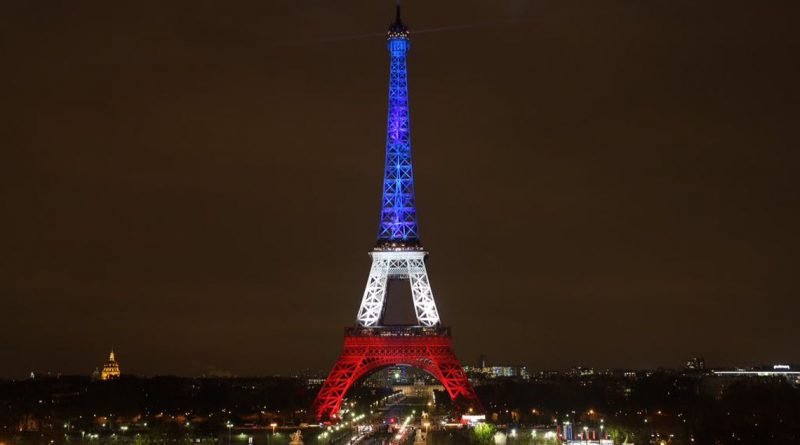Internal and External: France’s Two-Front War Against ISIS
Mariah McCloskey
Editor in Chief
In November 2015, underneath the twinkling lights of the Eiffel tower, Parisians and Frenchmen across the country hung their heads low as they learned of the 131 people killed in a series of attacks in Paris coordinated by the Islamic State (IS). Nearly four years later, the man responsible – IS leader Abu Bakr al-Baghdadi – is finally dead, but for the people of France, the wound still festers.
After U.S. President Donald Trump pulled out American forces patrolling the Syria-Turkey border in October, many European states are looking for ways to evacuate their citizens accused of having links to Islamic State from detention camps in northeastern Syria. According to The Guardian, French society reacted to their government’s moves to assist women and children in these camps with intense backlash, fearing the return of not only radicalized IS fighters but their families as well. Such concerns continue to mount in the wake of President Trump’s sudden decision to pull U.S. troops alongside worries that an ensuing power vacuum could lead to a collapse of security in the region.
In response to the fear of the Islamic State, French Rafale fighter aircraft conducted a strike on several of the group’s tunnels in northeastern Iraq. According to The Defense Post, France’s Armed Forces Minister Florence Parly commented on the strike on Twitter, saying “we give no respite” to ISIS and that, “France’s position is constant and its determination to fight terrorism remains intact.”
IS militants retaliated and, according to the group’s social media, “detonated an explosive device on a French army convoy in the Indolamine area,” The National reports. This violent response coincides with an IS-claimed attack that killed 49 soldiers in the West African state of Mali, where France has committed military forces to combat growing Islamic insurgency efforts. While the attack initially targeted members of the Malian Armed Forces, the total casualty count from the attack included at least one French soldier. In addition to the 49 killed, the attack wounded three and left 20 survivors.
While France continues to focus on the looming threat from the outside, they forget to focus on a growing threat inside their nation: the mutual fear between the French and Muslim communities.
While President Trump may believe that the United States ended the IS question by killing al-Baghdadi, the French people feel the true depth of ISIS’s impact. There is a large fear of Muslims in France and an even larger desire to keep them out. The New York Times reports that there are many instances of hate towards Muslims in France, including a Muslim mother being reprimanded for wearing a headscarf and a former political candidate shooting at Muslims who were attempting to prevent him from burning down a mosque. Every day, in the persistent fear between French people and the country’s large Muslim population, the wound grows.
Although France set up a state of emergency style measures to protect its citizens, they create a larger divide between the two groups. According to The New York Times, a prominent constitutional lawyer and adviser to French President Macron, François Sureau, published a much-discussed pamphlet in which he wrote that “the state of emergency was 6,000 searches for 40 arrests, of which 20 were for excusing terrorism.” The most notable of these measures allows for expanded and renewable house arrests of persons under suspicion, searches without a judicial warrant, and the imposition of electronic bracelets.
Anti-Muslim sentiment continues to build as President Macron faces pressure to repatriate captured French nationals in Syria to face justice in France after the sudden U.S. pullout. According to the Telegraph, the fate of French jihadists is a political minefield for Macron, as there is little appetite to bring even more fighters back. Members of both the French political right and far-right movements call for the nationals to be stripped of their French citizenship.
While many French saw the death of al- Baghdadi as a victory, it is not the end – trials for the 2015 Paris attacks will begin in 2021. According to CNN, 14 people have been charged in the case including Salah Abdeslam, the lone survivor of the group that carried out the Paris attacks. Although these judicial measures may serve as a deterrent in the external war between France and the Islamic State, residual simmering tensions will only fan the flames of fear and hostility of the inner war that the French people and the Muslim community wage every day.

